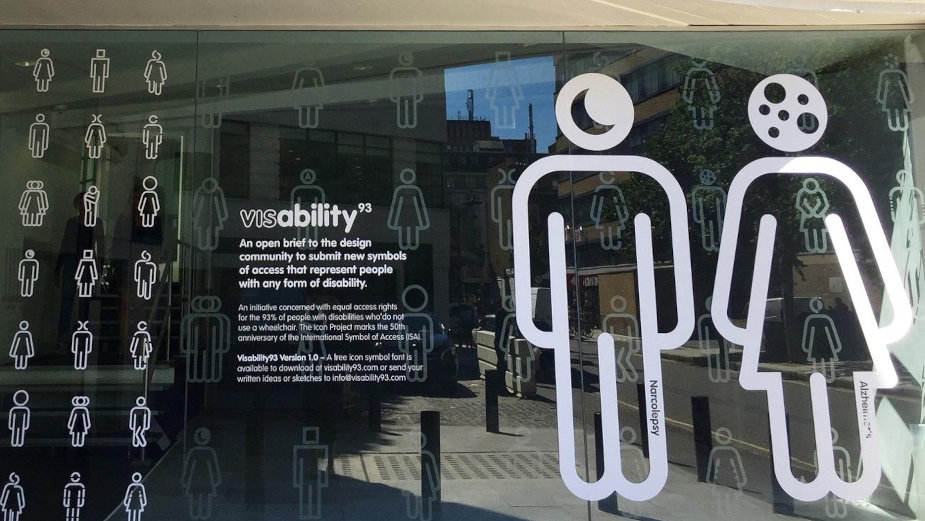
The Equality Horizon for Brand Britain: Perspectives from the Experiences of People with Disabilities

Photo by McCann London for visability93
This week marks the commencement of Disability Pride Month in the UK. It is estimated that between 14 - 22 million people in the UK live with a disability today.1 It is a segment of society that demonstrates a huge range of variability, whether determined by physical, cognitive, neurological, sociological or biological characteristics. Furthermore, this is a segment of society that everyone will join at some point in life – whether temporarily or permanently. Our research in Truth about Britain provides a unique perspective on the experience of what it means to be living with a disability in Britain today.2
Living with a Disability While British
So, how do people living with disabilities feel about being British today? It is striking – but perhaps not surprising – that people with disabilities are less proud to be British (52% vs 60% of non-disabled people) and feel less defined by their country (26%, vs 31% of non-disabled people). In part, this pride gap can be attributed to the frustration that people with disabilities express in view of the key issues facing the nation. From the cost-of-living crisis to cuts in public services to the media, people with disabilities are more likely to be angry than their non-disabled peers. From the NHS to community support groups to personal independence payments, the most vulnerable members of British society feel the brunt of the economic downturn first. In aggregate, this explains to some extent why people with disabilities are less likely than their non-disabled peers to say that their overall mood is positive (45% vs. 60%) and why they perceive the overall mood of the nation as negative (44% vs. 36%).
As one participant in our ethnographic research told us:
“Being a disabled person in modern Britain, I've seen society shift in attitudes towards disability and generally more of an open, liberal, more inclusive accepting society as people from different backgrounds find their way […] it's great that society is becoming more aware of the different people that make up a community, but this includes providing them with services and affordable places to live too. You can't really tackle these issues in two dimensions and society will need more pragmatic solutions to solve some of this.”
British male with a mobility impairment, 41, Cambridgeshire
Indeed, the pandemic era has had a compounding effect on some of these dynamics. While respondents in our study did not express significantly greater gains or losses associated with the pandemic than their national non-disabled peers, the national discourse around disability did shift. For some people with disabilities, the label of ‘vulnerable’, or ‘clinically extremely vulnerable’ in the UK, has created a feeling of ‘health status as identity’. Pandemic era measures and restrictions have had divergent effects in view of unique disabilities: non-visible disabilities risked being exposed due to practices of shielding; masks made lip-reading impossible for those with hearing impairments; and restrictions on access to services had multiplier effects on people with disabilities, for instance, where no interior waiting areas were available.3
Universal Design Is Far from Universal
For people with all types of disabilities, the accessibility of an environment defines their experience, and often requires more than ‘cookie-cutter’ solutions such as ramps and tactile signage. Disabled toilets are a vital aspect of accessibility in public spaces, but people with disabilities frequently cite their usage as storage cupboards, defeating the intended purpose and rendering them inaccessible. The development of a universal design approach to the built environment – enabling access and use to the greatest extent possible by all people regardless of their age, size, ability, or disability – is a positive step, but implementation has proven to be a challenge across the UK. People with sensory impairments in the UK are more likely to have experienced improvements in access to transport services (27% vs 23% PWD and 21% of non-disabled people) and housing conditions (25% vs 19% PWD and 19% non-disabled people) in the last ten years. But previous standards of accessibility were very low – for example, in 2012, only 24% of London underground stations were fully accessible; the figure is 33% a decade later in 2022.4
We can also see a lack of inclusion in recent sustainability initiatives across the UK. Whilst the need for sustainable solutions is urgent, people with disabilities have been forgotten all too quickly in the push for low-emission transport, for example. EV charging points are not built with universal design in mind: they have limited access for wheelchairs, heavy cables, and often the signage is unclear for people with sensory impairments. Similarly, recent introductions and proposals for car free zones in cities will make travel impossible for many people with disabilities who cannot travel by other means. There is also a disconnect between the intention and continued implementation of universal design principles.
Brands Lead the Way to Empathy
From social movements to brand campaigns, from parasport to comedy, the UK has seen a rise in disability awareness and action in recent years. What started as a call for representation at the 2012 Paralympics, Meet the Superhumans, has become a mainstay of national TV, with the most recent 2021 Paralympics Channel 4 coverage drawing over 20 million viewers and the ad campaign Super Human reaching 81% of the UK population. Corporates are increasingly championing disabled talent: with the LinkedIn Changemakers campaign celebrating the power of a diverse workforce, and the UK-based initiative The Valuable 500 securing commitments from 500 leading international organisations to put disability inclusion on their board agenda in 2021.
The marketing community has been a driving force behind the evolution of empathy-led initiatives, offering potentially life changing solutions for the problems faced by people with disabilities, and engineering new ways to live independently and connect with others. From IKEA ThisAbles to the MasterCard Touch Card to Goability, outperforming brands have centred the experiences of people with disabilities. It is worth noting, however, that disability remains vastly underrepresented in advertising in general. Channel 4 recently reported that just 4% of UK TV ads feature people with disabilities, despite 22% of the UK population having a disability.
Specialised products are vital, but it is only through more inclusive efforts to centre disabled voices and experiences that culture and commerce can progress towards a more equitable, accessible, and sustainable standard. As with all areas of equity and inclusion, brands, government, and businesses will need to devise multi-dimensional solutions that interrogate the full spectrum of decisions that impact their products and services. There is no reason that leadings businesses should not have an accessibility board of advisors as they do when it comes to sustainability. Further, these advisors should not be siloed into DEI initiatives, but contribute across all verticals of an organisation. Direct involvement and participation of members of the disability community will not just be good for business, but it will be good for culture.
Authors:
Dr. Mark Carew, Principal Researcher, Leonard Cheshire
Dr. Rodney Collins, PhD, EVP, Global Head of Human Sciences, McCann Worldgroup
Research Executive:
Freddie Sheffield, Truth Central, McCann Worldgroup UK
Methodology
McCann Worldgroup's Truth About Britain 2022 study builds on 15 years of trended data and research about the nation’s cultural, social, and political fabric. Conducted by McCann Worldgroup Truth Central, the organisation's global intelligence unit, the quantitative study surveyed more than 1,200 people (nationally representative across regions, ethnicity, age, LGBTQ+ status, disability). Truth Central also built an online ethnographic community of 55 individuals from across the nation. For more information, visit https://truthaboutbritain.mccannworldgroup.com/p/1
1. For this piece, we use the terms “people with disability/people living with a disability” in view of an international audience. In the UK, disabled people is the more common term.
2. The difference in terms reflects the tradition of the social model in UK where adherents say they do not live with a disability in their body, instead the disability is forced upon them by society.
3. UK Government study (‘The lived experience of disabled people during the COVID-19 pandemic’). https://www.gov.uk/government/publications/the-lived-experience-of-disabled-people-during-the-covid-19-pandemic/the-lived-experience-of-disabled-people-during-the-covid-19-pandemic













